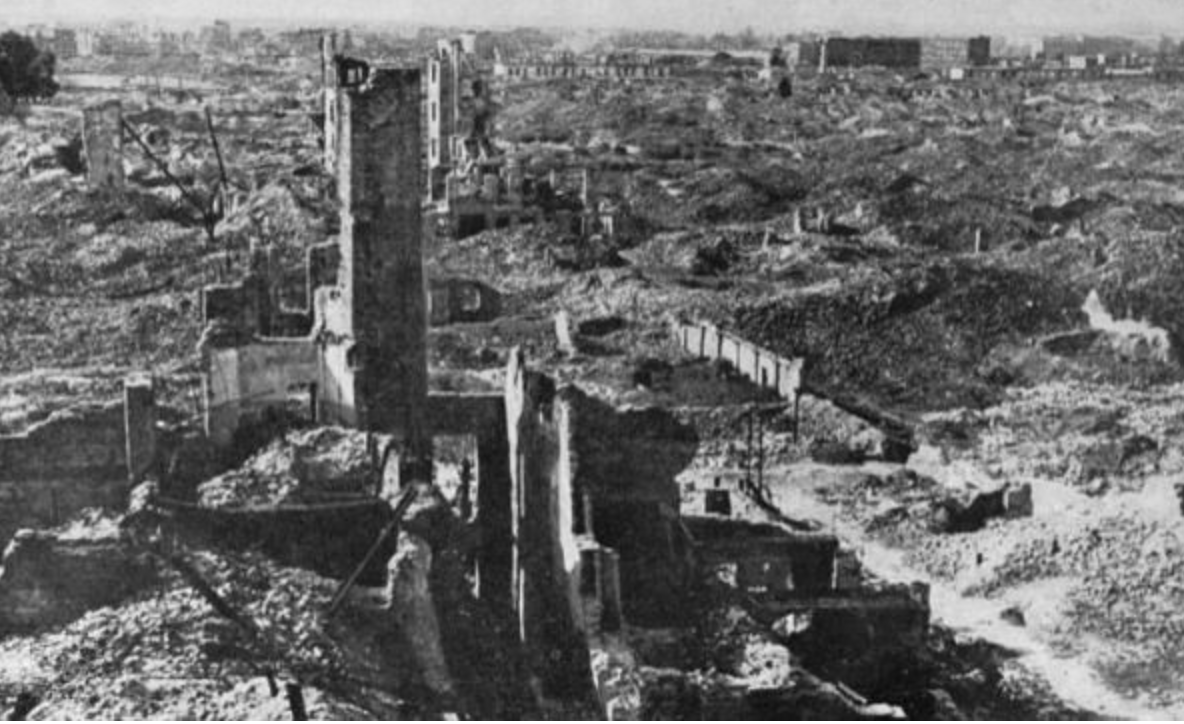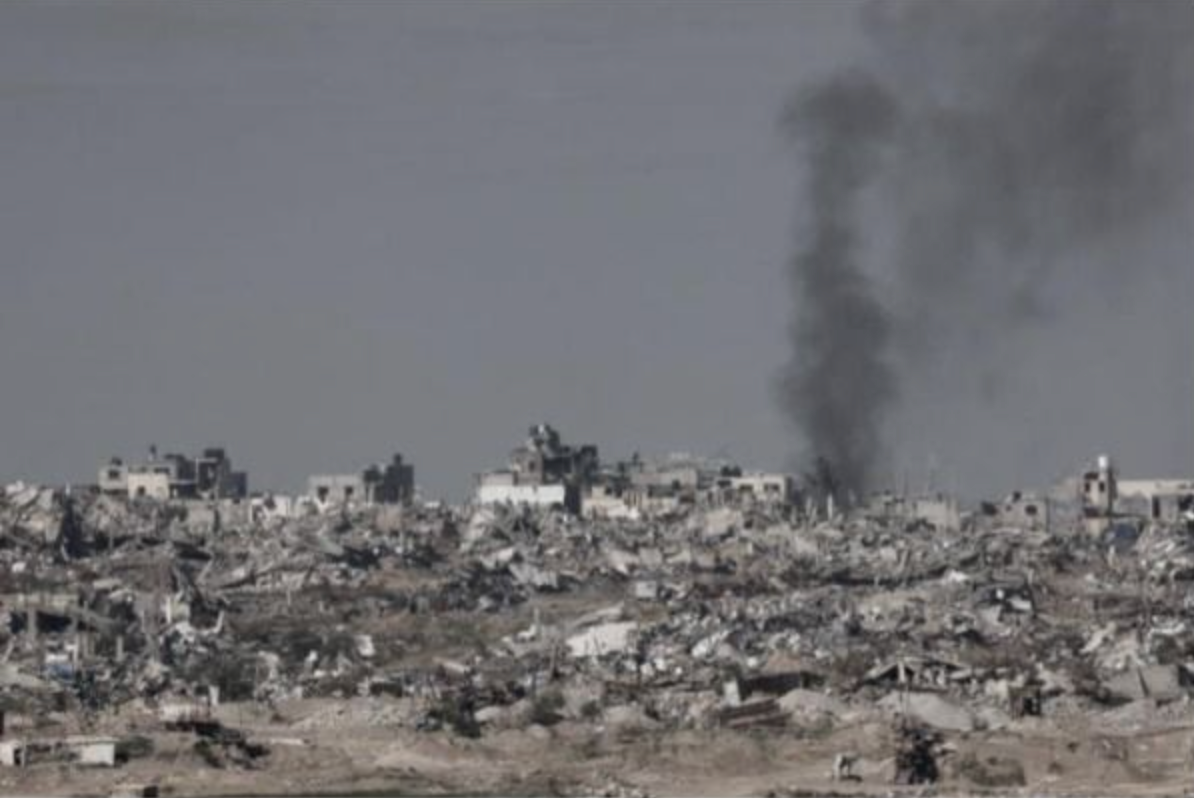The book Postcards to Hitler: A German Jew’s Defiance in a Time of Terror tells the story of my grandfather Benno Neuburger who, during the period from September 20, 1941 to February 28, 1942, placed at least 14 postcards in the mail in Munich denouncing Adolf Hitler as a mass murderer and warning of a potential genocide of millions of Jews.
Benno and his wife Anna, an older couple, were evicted from their Munich apartment in March 1942 and placed in a transit camp called Milbertshofen. Shortly after arriving at the camp Benno was arrested and brought to the Munich Gestapo headquarters. Under brutal questioning, evident on the bruised face of his gestapo mugshots, he confessed to having placed the postcards in the mail. He thereafter upheld his actions in Nazi courts.
On July 20, 1942 he stood before a Nazi court in Berlin charged with high treason. At the trial Benno defended his actions by saying that the only means he had to bring attention to the murderous persecution of Jews was to denounce it in some public way. The judges accused him of trying to foment revolt against the government at a time of war. They argued that the only way Benno could have succeeded in reversing the government’s anti-Jewish policies would have been through a successful overthrow of the Hitler regime which could only have succeeded through violence. Were they correct? Of course they were. There was no way that the beastly persecution of Jews, Roma people, gays and lesbians, socialists, trade unionists, communists could have been ended without a massive social upheaval and the defeat of the Nazi state.
Today, Benno’s resistance has drawn praise from people who recognize the horrendous injustices of the Nazi persecutions and murders. But in 1942 he was denounced in terms that might be equated with what today is called “terrorism.” In a brief article that appeared in a Munich newspaper shortly after his execution in Berlin, Benno was condemned for having slandered Germany and its leader.
On March 20 of this year, at a large gathering of people in Munich’s Volkstheater to discuss a coming anti-fascist event called “The Return of the Names,” Benno’s story was highlighted and applauded.

What Benno did is what all oppressed people facing persecution and brutality have the right to do. That is, resist! Who indeed would argue that such resistance by Jews in 1941 was unjustified? Who would condemn, for example, the armed uprising by Jews in the Warsaw ghetto in 1943? Of course, the Nazis at the time denounced it and brutally repressed it. The Nazis used the violence of Jewish resistance as justification for turning the entire Warsaw ghetto into rubble.
Thus resistance to extreme oppression is not necessarily always recognized as just. Today the Palestinian people who face grave injustice as they have for decades, have resisted in many ways, both peaceful and violent. And while it is indisputable that Palestinians have been persecuted, violently uprooted from their historic homeland, discriminated, and unjustly killed for decades, their right to resistance has not been recognized by many governments and even among people who uphold resistance in other contexts.
Benno was executed in the Plötzensee prison in Berlin, on September 18, 1942. This was in the midst of what we now call the Holocaust.
At the time, the German armies faced setbacks in combat with Soviet armies and against partisan fighters in Russia and other occupied countries.
As setbacks to Nazi war goals in the Soviet Union mounted, problems related to the war affected the German people on the home front threatening to undercut support for the war among the German population. In response, the Nazi leadership intensified their anti-Jewish propaganda using hate and fear of Jews as a means to fortify the German population’s support for the war. Denunciations of Jews in the German media, reached a fever pitch, while restrictions on Jews, already draconian, were further tightened. Jews were compelled to wear a yellow badge with a star of David when in public. Jews were evicted from their homes and concentrated in special houses or in special camps which soon became transit points for the death camps east of Germany.
Jews had faced growing persecutions since 1933 whose aim was to drive them from Germany. By the winter of 1941 – 1942 the aim was no longer to force them to emigrate, but to murder them.

There are clear parallels between this history and to the war against the Palestinians today. The years of persecution and occupation aimed at driving Palestinians from their lands, have now become something even more sinister, something akin to mass murder. Like my grandfather who denounced what he saw as a coming genocide that had yet to totally materialize, Palestinians have resisted.
Though some will recoil at comparing today’s Israeli leaders like Netanyahu, Smotrich, Ben Gvir and Gallant with Hitler, Goering, Heydrich, and Himmler, these comparisons are not off the mark. Not only do we see this in the heartless and willful ethnic cleansing in the West Bank and in the massacre of men, women, and children in Gaza but in the ideology that lies behind the slaughter. It is an ideology of racial and ethnic superiority, a nationalism with a racial orientation. The Nazis sought to cohere national unity on the basis of such notions as Aryan superiority. Today’s Israeli leadership seeks to cohere the Israeli nation around the notion of Jewish superiority, sometimes in blatantly racial terms.
Whether one refers to a “Jewish race” or an “Aryan race,” or as in the U.S. the so-called “white race”— these mythologies are meant to draw distinctions between groups of human beings – to dehumanize one group in order to justify their mistreatment and dispossession.
In Nazi Germany the dispossession of Jews was called “Aryanization.” In Nazi racial mythology only those with “Aryan blood” had the right to hold property. Today, the dispossession of Palestinians is justified by resorting to biblical mythology. But in both cases they reinforce fanatical adherence to mythical doctrines with material rewards. They were and are meant to build a rabid, fanatic loyalty among a section the population, loyalty that breeds willingness to carry out the most barbaric brutality. In Germany the non-Jewish population watched as Jewish people were marched through the streets of German towns to train stations taking them to the death camps in the East. German silence was complicity, often willing complicity. In Israel, as Palestinians in Gaza face death by extreme violence and now, starvation, Israelis remain largely silent or, even, assist the starvation by blocking trucks carrying food supplies at the Gaza border! In Germany the Einsatzgruppen death squads carried out executions in the lands occupied by the German invaders while SS units operated death camps, like Treblinka where my grandmother was murdered. Today it is the IDF raining death from the skies, raiding hospitals, humiliating Palestinians, carrying out heartless murders, while IDF soldiers shoot down starving Gazans as they attempt to get food. Nazi propagandists lauded German troops who carried out their repression of Jews as heroes of the Reich. And so it is today that Israeli leaders celebrate the exploits of their own brand of soulless murderers as heroes of the Israeli nation.
Are the Israelis carrying out crimes as did the German government in the 1940s? Yes. Did the Jews of that era have a right to resist these crimes? Yes. Do the Palestinians have a right to resist their oppression and persecution? Yes. Should the people of the world support the Palestinians? Yes again. Should Jewish people support Palestinians? Absolutely. If we are to uproot the soil on which antisemitism and all forms of racism flourish, we must oppose this racialized nationalism and racial persecution wherever it manifests itself, whether in Germany in 1940, or Israel or the U.S today.
Is support for Palestinian resistance anti-Jewish? Absolutely not. My grandfather’s acts of resistance were not anti-Protestant nor anti-Catholic, nor anti-German, in the broader sense of the term. They did not challenge the right of Germany to exist as a country. They were anti-fascist, anti-Nazi, against an extreme and unjustifiable form oppression.
Today’s Palestinian resistance is not antisemitic, nor anti-Israeli in the broader sense of the term—demanding justice for Palestinians is not a threat to the existence of a safe place for Jews to live. Palestinian resistance is anti-fascist. It is challenging racial and ethnic oppression, and occupation, ethnic cleansing, and apartheid. It too is justified. Whether one agrees or not with Hamas’ outlook – and I do not – this does not deny the right of the Palestinian people to defend themselves. But it does place on the people especially in the United States. This country has propped up the monstrous Zionist state because it is a key “asset” and armed protector of U.S. imperialist interests. We have a great responsibility to defend the Palestinian people, to insist on their right to equality, to justice, to live as equals in the land that is historically their homeland. It is on us to insist and struggle for the end to occupation, ethnic cleansing, and apartheid.
The Palestinians have the same right to resist as my grandfather Benno had. And I, as the grandson of an anti-Nazi resister, fully support that right. As Jews in the lands occupied by the Nazis had a right to resist, so too do Palestinians under occupation, under apartheid and racial oppression have a right to resist and should be supported. For their benefit, for ours, for humanity, we must help them succeed.
